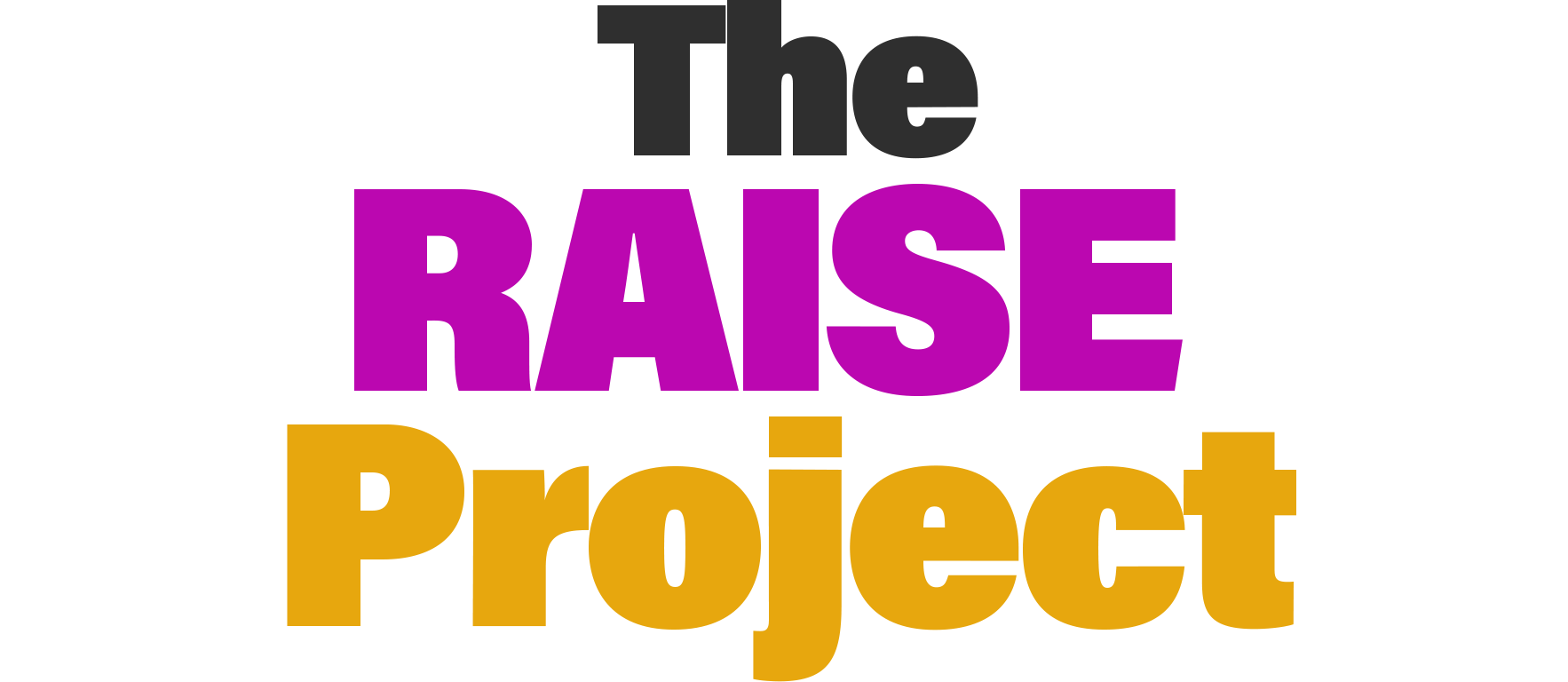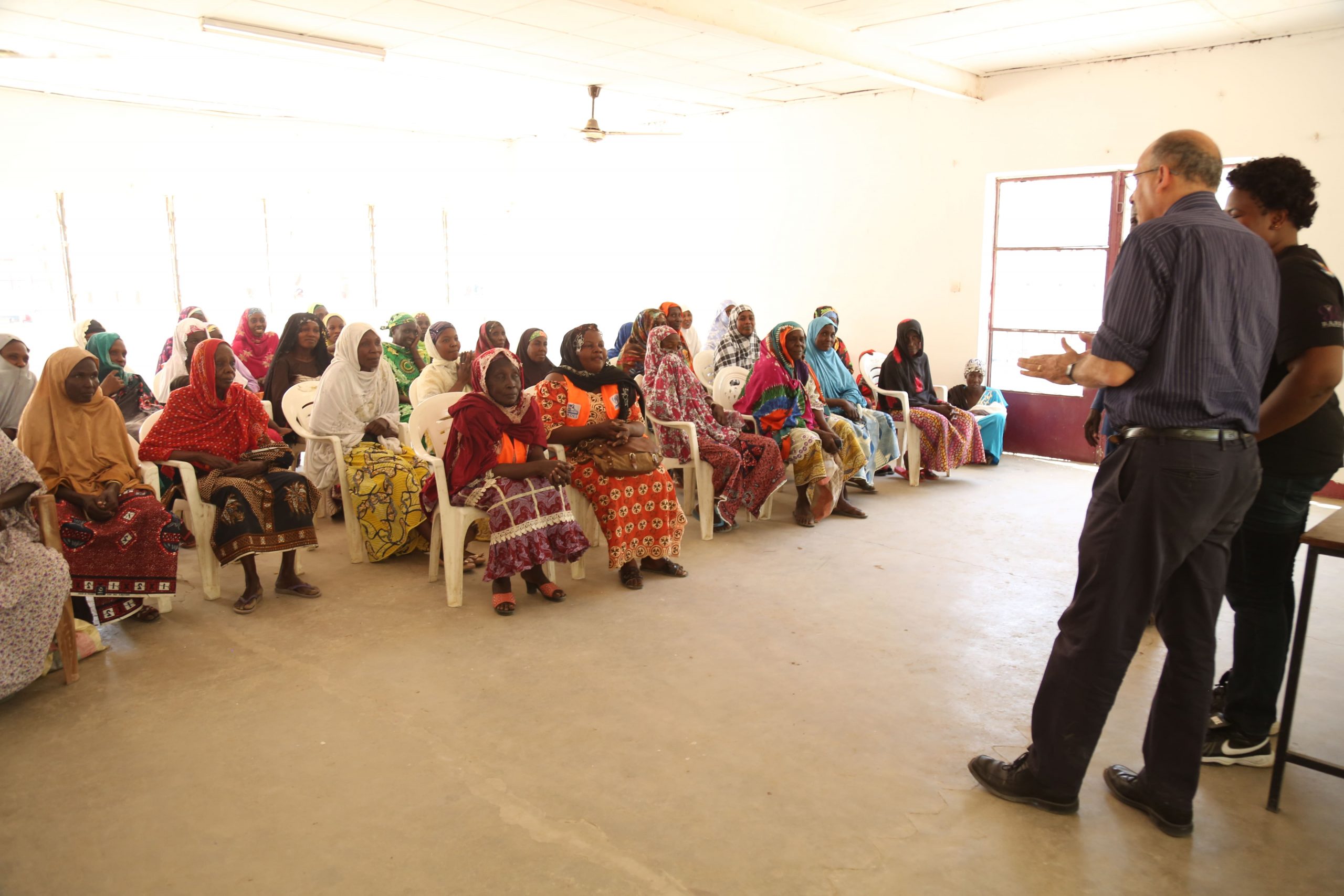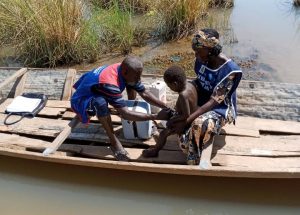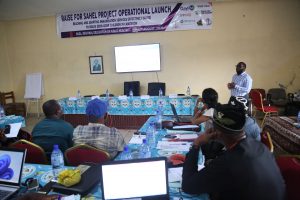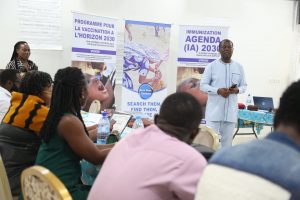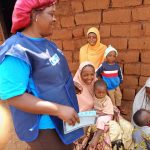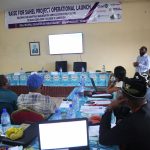Maga, a Health District in the Far North Region of Cameroon, was listed as one of the leading health districts in Cameroon with high levels of zero-dose children. Hence, the RAISE for Sahel (R4S) team dropped its bags in Maga to confirm with the communities what the data and desk review surveys portrayed. This trip was also to ascertain the possibility of adapting the creation of Care Groups in Maga communities.
The team led by the Technical Coordinator of the R4S project – Dr Njume Epie, visited the Regional Delegation of Far North, the Regional EPI Coordination Office, the District Medical Office of Maga, the Divisional Office of Maga, the Sultan of Pous, the Health Center of Guivirdig and some Community women to ascertain and consolidate their findings about Maga Health District.

“Maga is inaccessible in the rainy seasons as it is situated in the lower basin of the Logone and Chari Rivers. Also, Lake Maga is 4 metres above the land. Hence, when there is a heavy downpour, Maga literally sinks underwater.” Mr Sede, Divisional Officer of Maga, bolstered.
Despite the heavy bodies of water surrounding Maga, Maga continuously attracts people from diverse backgrounds like Mousgoums, Shuwa Arabs, nomads and migrants from Chad and the Central African Republic. Its inhabitants believe Maga remains a source of blessings to them as it has several income-generating activities in the fishing, rice farming and tourist sectors.
Why Maga needs an extra push to reach its Zerodose Children
The contamination of the rivers and lakes with human and animal waste, sewage spills and water runoff during rainfalls, coupled with the low immunisation coverage in Maga, has exposed its inhabitants to several vaccine-preventable diseases. “The facts are glaring, and the urgency is unprecedented, especially with the recent discovery of a polio case in Maga. While this case shows that our surveillance system is effective, it also reminds us that we must close the Gaps in immunisation.” Dr Yaya Alhadji Adam, the Regional EPI Coordinator for the Far North, explained.

“From all indications, our database informed you of your choices because Maga needs such reinforcement, and I can only welcome you to the Far North Region. Your coming is not only timely but also indispensable as it will help us guarantee the wellness of every child.” Dr Hamadou Bava Boubakary- Far North Regional Delegate of Public Health,
While talking with the community women, the team realised that a lot of misinformation, ignorance, and social norms prevent families from vaccinating their children. “I don’t vaccinate my children because I think it will make them barren.” Fadhi, a mother of a toddler, explained.
Phil Moses, a Food for the Hungry partner, accompanied the team to Maga to appraise the landscape and recommend how to contextualise the rolling out of Care Groups in Maga. It is worth noting that the Care Group model is a head count systematic approach to reinforcing behaviour change in communities. This aspect remains an underpinning facet in demand creation for immunisation services, which would go a long way to dispel myths and provide accurate information to the underserved people of Maga.
The R4S team is rolling its sleeves to bring all hands on deck, from the regional health delegation through the religious leaders to the community level, to ensure they reach the last mile in immunising every child in Maga.
